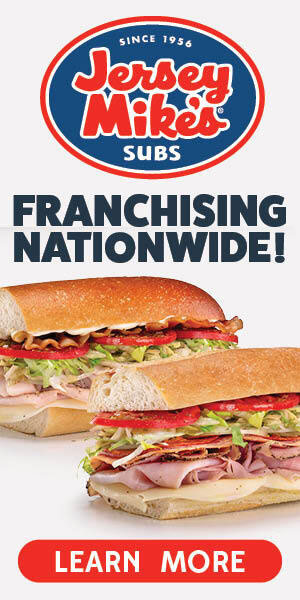7 Quick Tips for Writing Better PPC Ads
As the resident copywriter at Local Search Masters, I review more online ads every day than is probably healthy. Luckily, spending all this time working with and thinking about these ads has helped me learn a few good habits I'd like to share here.
Now that Yahoo, Bing, and, of course, Google all have their own pay-per-click (PPC) ad platforms, the medium is more important than ever for digital advertisers. The next time you sit down to compose ad copy, check to see if you're doing the following to the best of your ability.
1) Make sure each ad alternative you write has a specific purpose.
Most marketers will write a few experimental ads and let Google's programs figure out which one is the most relevant (and therefore should start to run more often). This is smart, but it's important to have a defined theme for each ad. For example, you could write an ad (Example A) that targets people who are mainly concerned with features, and another (Example B) that speaks to the more emotional types by changing the points of focus:
A: Personal Back Scratchers. Long Handles Reach Lower Back. Made of Rich Mahogany. Order Now!
B: Personal Back Scratchers. Experience Unparalleled Relaxation. Call Today & Tell Stress Goodbye!
2) Use your locality to your advantage.
People like convenience and familiarity. If you put the name of your town or city in your headline, searchers will subconsciously say to themselves, "Hey, I live there!" and be more inclined to go with you - even if the other company that neglects to put a location in the ad is actually local too. Users often make decisions on what to click extremely quickly, so any subtle advantage can make the difference. Reminding them that you're local is surprisingly effective.
3) Use {keyword:dynamic keyword insertion}.
It's important to remember that people are searching for a very specific something, spelled out in a certain way. The closer you can get to describing what a person is looking for, the higher the likelihood that person will click your ad. Dynamic keyword insertion (DKI) lets marketers place the keyword phrase the person typed into the search bar (or the keyword closest to one of the keywords loaded into the Ad Group) into the ad itself. Be careful though: using DKI can sometimes result in odd phrasing, so make sure you monitor how the ads display with various keywords.
4) Include promos, deals, and special offers whenever possible. This probably seems obvious, but it's worth a reminder. If you're running any kind of promotion, it needs to go in your ads, and preferably toward the front to maximize visibility. If you're not running any deals, convince whomever is necessary to start running one. When you do choose a special offer to run with, make sure you've surveyed the competitive landscape. It doesn't do you any good to offer $50 off when your competitors are offering $100 in the ad right next to yours.
5) Place call to actions at the end of the ad.
The general flow of an ad should go something like this: 1) get user's attention; 2) inform user of differentiating benefits; 3) motivate user to act. Disturbingly often I'll see a "Call us now!" thrown into the first line of the ad. Keep the call to action at the end so it comes when the user has already been persuaded and is ready to go ahead and click.
6) Explain the benefits of choosing your company - not of choosing the service itself.
This should be a no-brainer as well, but quite often I see ads that explain why you need what you're searching for. Usually, when someone is searching for a specific product or service, they already understand its value. Spend those valuable characters positioning yourself above your competition in some way, not touting the benefits of the generic service itself.
7) Test, test, then test again.
There's a funny little mantra that most digital marketers live by: "In God we trust. Everything else we test." PPC campaigns are highly measureable and have the ability to be micro-optimized to the hilt. Take advantage of all the data you acquire over time to tinker with your campaigns to see what keywords, calls to action, extensions, and stated differentiators drive the best metrics (particularly click-through rate and cost per click). You'll save - and make - much more money this way.
I hope you've learned something new here. If you disagree with anything or think I've left out something very important, please let me know by email or in the comments.
James Crater is the content and social media manager for Local Search Masters (LSM), a Nashville-based digital marketing agency. He can be reached at [email protected], and you can find more digital marketing content at www.localsearchmasters.com/blog,James on Google+.
Share this Feature
Recommended Reading:
| ADVERTISE | SPONSORED CONTENT |
FRANCHISE TOPICS
- Multi-Unit Franchising
- Get Started in Franchising
- Franchise Growth
- Franchise Operations
- Open New Units
- Franchise Leadership
- Franchise Marketing
- Technology
- Franchise Law
- Franchise Awards
- Franchise Rankings
- Franchise Trends
- Franchise Development
- Featured Franchise Stories
| ADVERTISE | SPONSORED CONTENT |








 The franchise listed above are not related to or endorsed by Franchise Update or Franchise Update Media Group. We are not engaged in, supporting, or endorsing any specific franchise, business opportunity, company or individual. No statement in this site is to be construed as a recommendation. We encourage prospective franchise buyers to perform extensive due diligence when considering a franchise opportunity.
The franchise listed above are not related to or endorsed by Franchise Update or Franchise Update Media Group. We are not engaged in, supporting, or endorsing any specific franchise, business opportunity, company or individual. No statement in this site is to be construed as a recommendation. We encourage prospective franchise buyers to perform extensive due diligence when considering a franchise opportunity.